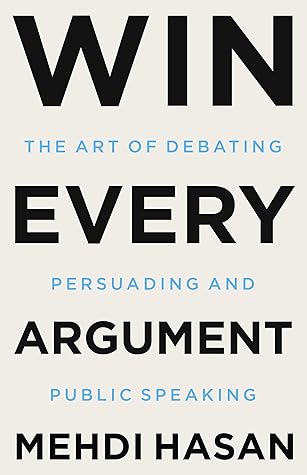For Aristotle, an ideal peroration is “composed of four things”: It seeks to draw the audience in, “getting the hearer favorable to oneself, and ill-disposed toward the adversary.” It drives home the stakes of the argument, by what he calls “amplification and extenuation.” It makes one final appeal to pathos, “placing the hearer under the influence of the passions.” It summarizes the key points of your argument, thereby “awakening [the hearer’s] recollection.”
Welcome back. Just a moment while we sign you in to your Goodreads account.


